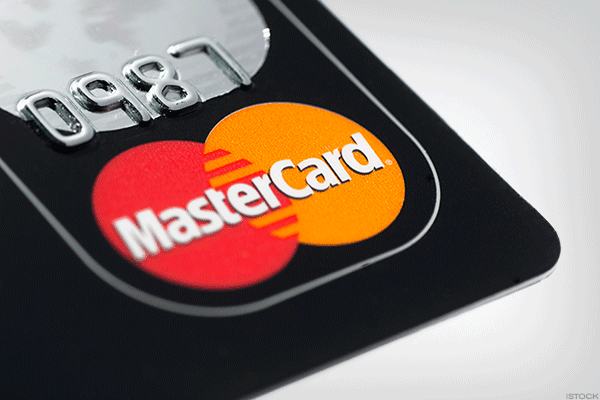
Mastercard (MA) posted modestly stronger-than-expected fourth quarter earnings Thursday while noting that consumer spending has remained "remarkably resilient" amid the global economic downturn.
Mastercard said diluted earnings for the three months ending in December were pegged at $2.65 per share, up 8.7% from the same period last year and just ahead of the Street consensus forecast of $2.58 per share.
Group revenues, Mastercard said, rose 21.4% to $58 billion, essentially matching analysts' estimates of a $5.79 billion tally. Gross dollar volumes were up 8%, the group said, while purchase volumes rose 11%.
“We closed out the year with strong financial results and notable wins which will help us capitalize on the tremendous secular shift to digital payments,” said CEO Michael Miebach. “As we look at the broader economy, we see the continued recovery of cross-border travel, with volumes up 59%1 versus a year ago and we’re encouraged by Asia opening up further."
"While macroeconomic and geopolitical uncertainty persists, consumer spending has been remarkably resilient," he added. "We are well prepared to adjust our investment profile quickly if needed.”
Mastercard shares were marked 1.3% lower in early Thursday trading immediately following the earnings release to change hands at $377.57 each.
Visa (V), Mastercard's larger rival, will publish its fourth quarter earnings after the close of trading today, with analysts expecting a bottom line of $2.01 per share on revenues of around $7.74 billion.
Late last year, the U.S. Federal Trade Commission ordered Mastercard to allow competing networks access to the cardholder account information they need to process debit payments.
The FTC had accused Mastercard of blocking such access, calling the order "a victory for consumers and the merchants who rely on debit card payments to operate their businesses."
Mastercard also settled a lawsuit in the U.K. brought by two of the country's biggest grocery store chains -- Asda and Morrisons -- over so-called multilateral interchange fees, ending the need for a trial that was set to begin later this month.







